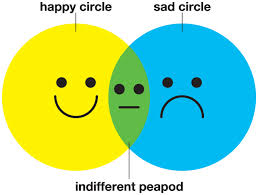记忆方法
将“indifference”拆解为“in”+“difference”。想象在两个不同的意见或观点之间没有差别,即完全相同,这就形成了“漠不关心”或“冷漠”的状态。通过这样的对比,可以帮助记忆“indifference”的含义。
以上内容由AI生成, 仅供参考和借鉴
中文词源
indifference 冷淡,漠不关心
来自indifferent,冷淡的。
英语词源
- indifference (n.)
- mid-15c., from Latin indifferentia "want of difference, similarity," noun of quality from indifferentem (see indifferent).
权威例句
- 1. "Giles phoned this morning," Mirella said with feigned indifference.
- “贾尔斯今早来电话了,”米雷拉装作若无其事地说。
- 2. He displayed a sublime indifference to the distinction between right and wrong.
- 他对是非之间的差别根本就无动于衷。
- 3. He laughed it off with aristocratic indifference.
- 他带着贵族式的漠然对其一笑置之。
- 4. his total indifference to what people thought of him
- 他对别人怎么看他毫不在乎的态度
- 5. She handled the matter with seeming indifference.
- 她看似漫不经心地处理了这件事。
